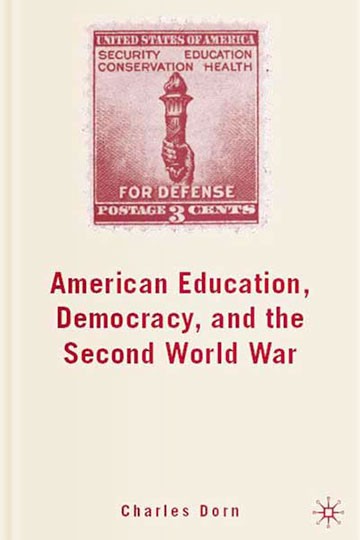American Education, Democracy, and the Second World War examines how U.S. educational institutions during World War II responded to the dilemma of whether to serve as “weapons” in the nation’s arsenal of democracy or “citadels” in safeguarding the American way of life. By studying the lives of wartime Americans, as well as nursery schools, elementary and secondary schools, and universities, Charles Dorn makes the case that although wartime pressures affected educational institutions to varying degrees, these institutions resisted efforts to be placed solely in service of the nation’s war machine. Instead, Dorn argues, American education maintained a sturdy commitment to fostering civic mindedness in a society characterized by rapid technological advance and the perception of an ever-increasing threat to national security.
Review
“Dorn has produced our best monograph to date about American education during World War II. A close case study with wide implications, Dorn’s book carefully explains how America’s schools and colleges re-shaped themselves to serve the war effort. But schools also retained or even revived their civic function, educating a new generation of Americans for the difficult challenges and dilemmas that lay ahead. Today, inan era of heightenedglobal conflict and insecurity, Dorn’s book could not be more timely or relevant. Weneed to think anew about democracy and education in war, and Charles Dorn will help us do that.” – Jonathan Zimmerman, Professor of Education and History, New York University”This capacious book examines how American’s longstanding faith in education complicated their thinking about wartime and postwar educational change. Dorn’s book is rare among histories of education in examining the whole range of schooling, from universities to local schools to nursery education, replete with strong case studies. His careful attention to forces of ‘acceleration’ and ‘conservation’ is an important addition to our growing body of knowledge on World War II education.” – Linda Eisenmann, Dean, College of Arts and Sciences Professor of Education and History, John Carroll University “Dorn’s gracefulbook isextremely wellresearched andoriginally conceptualized. Historians will have to rethink many of their assumptions about education in a time of war.” – Kim Tolley, Associate Professor, School of Education and Leadership, Notre Dame de Namur University
